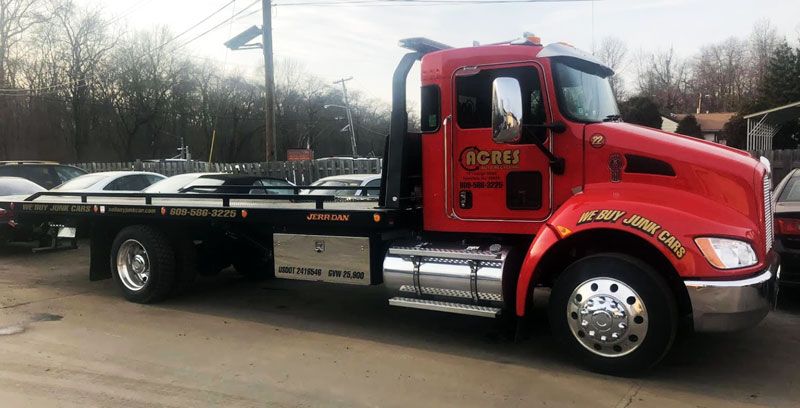Will My Rookie Mistake End My Manual Transmission Car on a Junkyard?

Will My Rookie Mistake End My Manual Transmission Car on a Junkyard?
A manual transmission (MT) car is different from an automatic transmission (AT) car with the basic difference of a clutch. The use of a clutch and the perfect timing to put it into action is a basic skill needed for all MT car drivers. In the older times, manual transmissions were particularly famous because they were more widely used and accepted. Our parent’s generation were actually the ones who’ve used manual transmission almost their whole life. It is only a recent surge that automatic transmissions have gained such huge popularity. With the increasing amount of traffic all around the world, manual transmissions are slowly becoming outdated. A lot of car manufacturers around the world have simply switched to only releasing cars with automatic transmission. However, those of us who are now in our mid-20s to mid-30s, have grown up spending time in our parent’s manual cars. We share the same knowledge and memories about seeing the manual gear shifting constantly.
Driving a manual transmission is not an easy task. It’s something that you can learn the basics of, in 15 minutes. However, mastering a manual transmission and knowing exactly when to shift a gear without choking the engine or halting it, is a skill that is learned over time. It’s very common to make beginner mistakes when driving your car for the first time or the first few times. But this learning phase can land your car in long-term or temporary harm. Transmission damage can lead to other problems as well, and with the rising cost of getting your car fixed, most people prefer to sell a wrecked car rather than save it. Most cars are insured, and thus you can either claim insurance or sell your car for cash. There are other things as well, that need to be kept in mind when driving a manual transmission. Here’s a list of things you need to keep in mind when driving a manual transmission car so that your car doesn’t end up on a Woodbridge junkyard or a Passaic junkyard.
- Remove hand from the gear shift stick;
The shift stick of a gear mechanism works on top of a rotating collar. Most manual drivers have a habit of placing their hands on the shift stick even when they aren’t shifting gears. This causes pressure from the shift stick to fall on the rotating collar below. In an unideal situation, your rotating collar from the manual transmission will ultimately malfunction or become damaged before its prescribed limit of time. Another reason for keeping your hands off the shift stick is so that you can use both hands to handle the steering wheel.
- Disengage clutch when going downhill;
A non-smooth clutch can make it very difficult to shift gears up or down. A worn clutch disc is the result of either rigorous gear shifting without completely engaging the clutch, or using the clutch unnecessarily. This causes the clutch to show problems in shifting gears when the car is moving.
- Do not place your foot on the clutch pedal
A lot of manual transmission drivers often make the mistake of placing their foot on the clutch pedal, out of laziness. They do it because they want a quick gear change and constantly moving your feet back and forth can be enraging and tiring. This also causes a condition called slipping clutch, which is triggered due to your foot resting on the clutch pedal. It causes engaging of the clutch even when it’s only slightly pushed.
- Do not use the clutch to stay stable on an inclined plane
Driving uphill is not an easy job, especially for those who aren’t experts at it. This is why people step on the clutch pedal and floor the throttle as soon as they let go of the clutch pedal, to avoid keeping the car from going backward. This causes wear and tear in the clutch disc of your car. If you keep this up constantly, the clutch disc life will come to end much before its recommended lifespan.
- Downshifting gears to gain speed
A traditional and conventional way for cars to gain speed is to sequentially go through each gear at their selected or estimated RPMs before hitting top speed. However, a lot of people driving at a high speed would choose to downshift to a lower gear so they could bring the engine to produce more output. However, this puts the engine under too much stress and duress and uses extra fuel. The stress could make the engine touch redline and components could break inside, leading to a complete overhaul of the engine.
- Shifting to neutral gear when the car idle
Most people after stopping at a red light, keep the cars in the first gear with their foot flooring the clutch pedal. This keeps the clutch disc constantly engaged and results in wear and tear. It is advisable that as soon as you stop at a red light, put the car in neutral gear and pull the handbrake to keep yourself and your car safe.
- Do not shift without the clutch
Forcing a gear change without engaging the clutch puts huge damage to the engine, clutch disc, and gearbox. The clutch acts as a safety pin for the gearbox. As long as the clutch pedal isn’t engaged, the gearbox wouldn’t shift gears. However, if you still force the gearbox to change gears, you will end up with a broken gearbox and transmission.
- Brake with the clutch pedal
A common mistake most people make is letting go of the clutch pedal when they break. This is called engine braking. The ideal situation is to adjust both brake and clutch to hold the gearbox from experiencing massive shock, and to protect it against sudden shock.
As we mentioned earlier, driving a manual isn’t an easy task. Coupled with learning when and how to shift gears, there are also these problems mentioned above that come into factor when driving a manual transmission car.



Leave a Reply